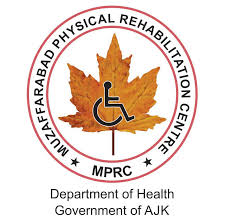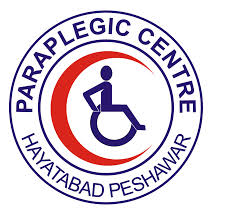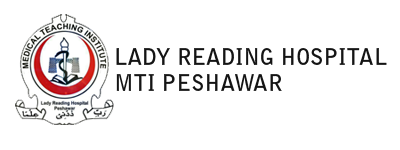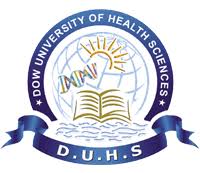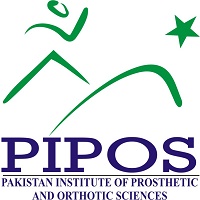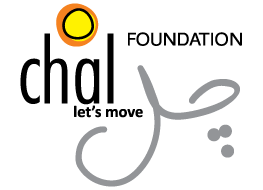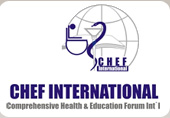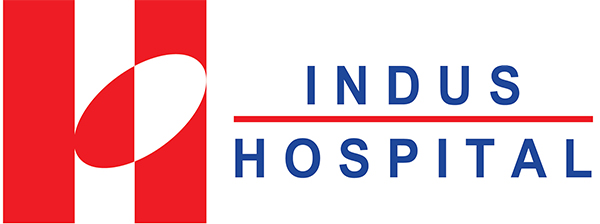The RI is powered by the untiring commitment of its rehab partners, who form the bedrock of the ICRC's activities to make prosthetic and orthotic material accessible across Pakistan. The year 2018 marked the distribution of nearly 22,000 orthotic and prosthetic devices free-of-cost to all four provinces. Despite these huge figures, the persons with disabilities catered by the ICRC only constitute 20% of the total number of PwDs in Pakistan, as per global estimates.
Our partner centers facilitate the expansion of a widespread network of rehab services and low cost material provision in remote areas of Pakistan, making possible a fair chance at life for many individuals. The following is a brief overview of our physical rehab partners and their contribution in the physical rehabilitation sector in Pakistan.
ICRC
The sole major international organization in the field of physical rehabilitation in Pakistan is the ICRC, which initiated its physical rehabilitation program in Pakistan after the devastating earthquake of 2005. ICRC has been meeting the need of the increasing incidence of disabilities due to traffic incidents, old age, amputations due to diabetes and other diseases. Though PRP of ICRC was established in the wake of the earthquake, but ever since, it has been working more than its capacity to cater PWDs all over Pakistan. The ICRC supports and trains physical rehab centers and institutes with advanced material, techniques and trainings to implement in best practices into their rehabilitation programs. Up to 90% of the registered PWDs in Pakistan today are catered by the ICRC or its partner centers. Not only does the ICRC ensure high quality of the material, but also reduces cost of products and services for the incoming patients. Over the years, the expert staff at the ICRC have produced and disseminated a wide range of research in the field of physical rehabilitation in their support of various programs and campaigns all across Pakistan.
Children Amputees Rehab Program
The Children Amputees Rehab Program was established in 2006 in Islamabad which not only provides physical rehabilitation to persons with disabilities, but also provides them with education and vocational trainings to help strengthen the PWDs and make them able to make their space in the society by earning their own livelihood. Regular sessions for evaluation of these trainings also takes place. . C-ARP works towards making sure that each amputee child has access to mobility, education/skills and is socially integrated and has an employment, hence providing them with vocational trainings. It provides tailored prosthetic services and devices to children and gives them exposure to social activities like sports etc. In 2015, around sixty children got treated and supported at the C-Arp.
Muzaffarabad Physical Rehabilitation Center
Muzaffarabad Physical Rehabilitation Center is one of the key centers of physical rehabilitation in Pakistan. It is located in Muzaffarabad, Kashmir, which was one of the most severely earthquake struck region. The harms done by the 2005 earthquake still lurk in the form of people living their lives with disabilities in this region. With constant support from the ICRC, MPRC has maintained and established its operations starting from receiving of patient to physiotherapy of those having received an orthosis or prosthesis. This P&O center now functions under the government of AJK, and caters around 4500 people annually. It manages a comprehensive treatment set up for patients including assessment of needs, training for patient´s families and follow up checkups.
Paraplegic Center
The Paraplegic Center Peshawar, situated in Hayatabad is an autonomous body of health of the KPK government, which not only provides free of cost rehabilitation services to people, but also psychological counselling, orthotic management, vocational trainings and skill building for the disabled to be able to make a living for themselves and be fully integrated into the society. To empower the PWDs further they also create a platform for various recreational activities such as sports to integrate the disabled in all activities of social life and help them carve their way out of the disparities they are subjected to. It works comprehensively to provide physical rehabilitation to patients 24/7.
Lady Reading Hospital
Lady Reading Hospital, is one of the busiest hospitals in Peshawar. Patients from all across KPK visit the LRH as it is a focal facility with highly trained staff. Likewise in the field of physical rehabilitation, LRH has one of the main physical rehab centers in Peshawar with its state of the art clubfoot clinic, established with collaboration of the ICRC. Clubfoot is a congenital disease suffered by children which causes the feet to become crooked, the treatment of which is easily possible, and if treated with proper care, it can be completely removed. The clubfoot clinic at LRH not only provides low cost treatment to these patients, but also actively involves the parents in the healthcare of the children. Maximizing the reach of their physical rehabilitation activities, the Clubfoot Clinic also provides awareness and trainings on how clubfoot is an easily avoidable condition if treated properly and at an early age. Parents from far and wide bring their children suffering from Clubfoot to be treated at this rehab center.
Dow University of Health Sciences
The Dow University of Health Sciences, is one of the oldest public research university located in urban metropolitan area of Karachi, Sindh Pakistan. Established in 1945, it is known for its strong emphasis on biomedical, health and medical research programs. It is one of the premium institution of higher learning in Pakistan, and ranked among one of the top medical schools by Higher Education Commission (HEC) in 2010 to 2014. The university is named after its founder, Sir Hugh Dow, who laid the foundation of the institution in 1945. The institution offers undergraduate, postgraduate and doctoral programs in almost all academic disciplines related to medical sciences. The Institute of Physical Medicine & Rehabilitation (IPM&R) has been established by the DUHS as there is an ever-growing incidence of people with disabilities caused by traffic accident, bomb blasts and terror related incidents, natural disasters such as earthquakes, amputations due to diabetes and congenital abnormalities, besides other problems. The Institute has three specialized schools, namely; The School of Occupational Therapy, The School of Physical Therapy and The School of Prosthetics and Orthotics which offer 4-years Bachelor Courses in Prosthetics & Orthotics Sciences.
Pakistan Institute of Prosthetic and Orthotic Sciences
Pakistan Institute of Prosthetic and Orthotic Sciences is a non-profitable & non-political autonomous body in the department of Health of Government of Khyber Pakhtunkhwa. It is the main non-profit government subsidiary organization providing P&O services. It has a total of 6 service centers. In 2015 alone it had a capacity to handle 6550 persons with disabilities and provide them with adequate rehab services. PIPOS trains professional Prosthetists and Orthotists, who provide rehabilitation services to PWDs and help them in becoming active members of the society. It is one of the leading government institutes for training P&Os and has also partnered with many international organizations such ISPO, UNHCR, The Nippon Foundation, USAID and professional medical colleges.
Chal Foundation
The Chal Foundation is a successor of the Chal network established after the 2005´s earthquake that hit Pakistan, leaving over more than a million people disabled for life. Chal, which means ´let´s move´ came as a beacon of hope for the PWDs in the post disaster country, especially in northern areas of Pakistan. Chal foundation has since then increased its network by establishing a total of six centers all over Pakistan in Besham, Buttagram, Balakot, Bagh, Quetta and Swabi. It rigorously delivers low cost rehab services to patients at their doorstep. The Chal foundation has a variety of prosthetic and orthotic devices, wheelchairs and assistive devices manufactured at their outlets according to the patient needs and aims to multiply their network of physical rehabilitation by establishing centers at district level all over Pakistan.
Comprehensive Health and Education Forum International
The Comprehensive Health and Education Forum International (CHEF) collaborating with the government and various INGOs provides quality health care and educational opportunities to the underprivileged population of the country. Currently with the support of ICRC, CHEF International is providing services at two centers in Islamabad and Charsadda. Founded in 2007, the inspiration behind its establishment was to provide quality health care and educational opportunities to the underprivileged population of the country. In 2015, about 87 people with disabilities were treated at CHEF International.
Indus Hospital
The Indus Hospital is a not-for-profit entity funded by the Islamic concept of WAQF, Zakat, Khairat (Charity), Sadqat and sharing of excess wealth with the nation. Indus Hospital runs a 150 bed hospital in Karachi´s Khorangi District and 70 bed hospital in Southern Punjab´s Muzaffargarh District and is in negotiations with state and non-state actors on extending its services to Peshawar, Interior Sindh, Quetta, Gawadar. Currently The Indus Hospital is managing three Physical Rehabilitation Centers one each in Karachi, Muzaffargarh and Lahore. In 2015, 1,557 people with disabilities received services from Indus hospital.
Akbar Kare Institute
Akbar Kare Institute established in Peshawar provides physical rehabilitation to persons with disabilities, mainly children suffering from cerebral palsy and Spina Bifida by administering customized mental and physical rehab exercises to improve their functioning. It has also collaborated with the Pakistan Institute of Prosthetic and Orthotic Sciences to attain material aid. Akbar Kare is a one of its kind establishment that continuously actively indulges parents into their children´s rehabilitation by opening physical and mental therapy sessions accessible to the parents at all times, involving them in healthcare of the children. Established by a disabled person himself, Saifullah Akbar, suffering from cerebral palsy, the AKI brings in fully enabled physiotherapy, mobility aids, adapted furniture and some essential drug support along with a very personal experience for all children and their parents who come to this facility.



